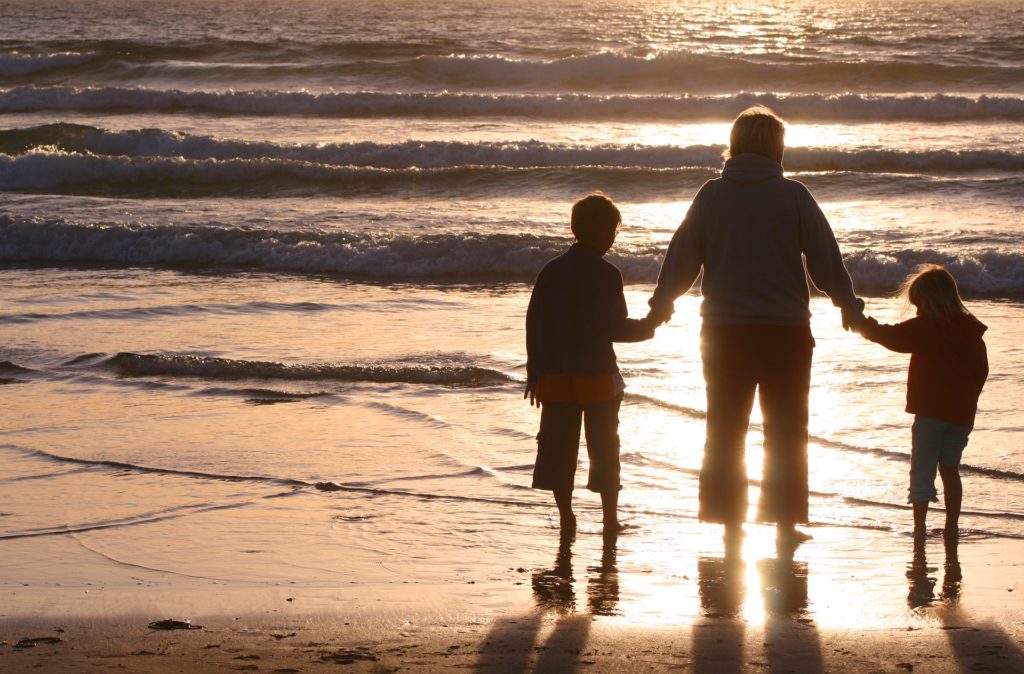
Contributed by Staff of Timberline Knolls
Children are the epitome of innocence and purity. But, what about a child struggling with self-injury? How could someone so delicate and good willingly inflict pain on itself?
Self-harm involves inflicting physical pain on one’s body. Most often this is done by cutting, burning, or biting. Whether a child learns about self-harm from somewhere, or someone, or just has the thought one day to try it out, it can quickly become addicting. The act meets some need that is not being met elsewhere.
The Nature of Routine and Ritual
We are innately ritualistic people, especially when we are young. Routine and ritual create a sense of safety, predictability and stability. The more we engage in the behavior, the deeper the pattern and ritual become ingrained. Thus, the harder it can be to break the cycle of addiction.
As the clinician, parent, or friend, trying to help a child struggling with self-injury addiction can feel like an uphill battle. The ultimate goal is to just keep them healthy and safe. Young kids may be able to abstain temporarily due to motivating factors or a period of stability in the mood. However, it is often not as easy as “mind over matter.” Hence it is of utmost importance to study the root of the behavior in order to break the cycle.
So why do young people engage in self-harm? Most often the behavior is tied to emotions.

Most children engaging in self-harm convey that “When I’m depressed I don’t feel anything, but when I cut, I feel something.” “I can’t stand feeling anxious, but when I hurt myself the anxiety goes away.”
“I feel a sense of relief after I cut.” “I feel guilty, shameful, and embarrassed, I deserve this hurt.”
Developing a Support System
When we as the support system stop focusing on the “what” and start focusing on the “why”, hope for change is possible. We can start the process of change by first acknowledging and validating what the child is feeling.
Open, direct and constructive communication is key to successful and functional familial relationships. Before embarking upon the mission to reach out to your child, it is vital to avoid the blame game, reestablish strained ties and be open to listening unconditionally alongside speaking honestly.
“I hear what you are sharing, it is perfectly okay for you to feel this way, and I am here to help you get through the feeling and/or situation in a healthier, safer way,” is a healthy way of broaching this difficult topic of conversation.
It is important to educate yourself in not just the subject of self-harm but especially to learn more about your child, their addiction and the unique challenges they are facing as an individual. Dig deeper into what drives your child’s addiction, what motivates their compulsive choices and what can most effectively help them overcome their struggles.
Next, we can help the child brainstorm and try out alternative ways of coping with the feelings. “Instead of cutting when you feel overwhelming anxiety, can we take deep breaths together or go for a walk?”
It is important to help the child struggling with self-injury differentiate when coping becomes avoidance versus tolerating. If we don’t learn to get through the emotional turmoil, we will continue to avoid or turn back to relying on self-harm to stop from experiencing the uncomfortable feeling.
If you feel the situation is getting out of hands, then it is best to seek counseling and professional support. Therapy has proven to be highly effective for mental and emotional well-being. Family therapy can be a particularly useful tool where a trained therapist can not only effectively tackle your child’s issues but also help you become the support system your child desperately needs. This can allow both you and your child to learn healthy coping mechanisms and how to rationalize emotional responses in the future.
Empowering a Child toward Recovery
The final step is empowerment. We empower the child by helping them build an array of tools for their coping skill toolbox and reminding them that they have the power of choice. They can choose to go for a walk, or ask for help, or not self-harm even if they don’t always feel that they do have the power at the moment. The child may struggle to control their thoughts and emotions, but we can control what we choose to do in response.
Ultimately, through it all, demonstrate love and support to your child, simultaneously remembering that your child’s struggles are not your fault and there are always limitations to your ability in saving a loved one.
When we as the adult can guide and support a child struggling with self-injury with patience versus doing for, the child may begin to feel the hope we hold for them that change is possible, and they are worthy of it.
References
Bulkley, M. (2016, October 18). How To Deal With A Child Struggling With Addiction. Retrieved from https://starguideswilderness.com/how-to-deal-with-a-child-struggling-with-addiction/
Thank you to Timberline Knolls for providing this article.
Timberline Knolls is a leading residential treatment center for women and adolescent girls, ages 12 and older, with eating disorders, substance abuse, trauma, mood and co-occurring disorders. Located in suburban Chicago, residents receive excellent clinical care from a highly trained professional staff on a picturesque 43-acre wooded campus. An adult partial hospitalization program (PHP) is also available in nearby Orland Park, Ill., for women to step down or direct admit. For more information on Timberline Knolls Residential Treatment Center, call 630-755-5173. We are also on Facebook – Timberline Knolls, LinkedIn – Timberline Knolls and Twitter – @TimberlineToday.
The opinions and views of our guest contributors are shared to provide a broad perspective of addictions. These are not necessarily the views of Addiction Hope, but an effort to offer a discussion of various issues by different concerned individuals.
We at Addiction Hope understand that addictions result from multiple physical, emotional, environmental, and genetic factors. If you or a loved one are suffering from an addiction, please know that there is hope for you, and seek immediate professional help.
Published on July 30, 2019
Reviewed and Updated by Jacquelyn Ekern, MS, LPC on January 11, 2021
Published on AddictionHope.com
